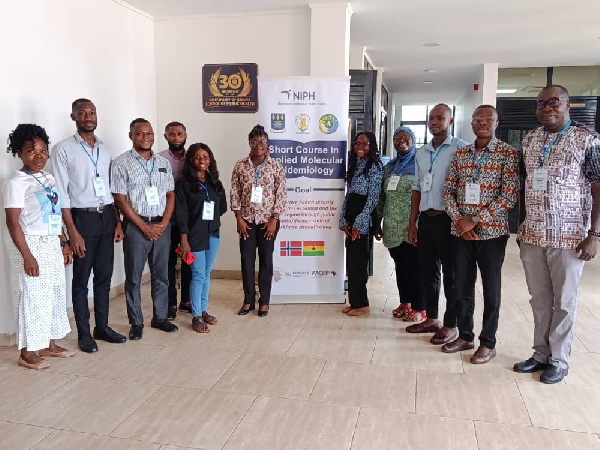
Bettendorf City Council will hold a special public meeting at 6:30 p.m. on its proposed tax levy on Tuesday at City Hall.
Here's what to know. For more information or to look up the proposed city levy rate's impact on a specific property, go to bettendorf.org/budget .

Bettendorf is proposing to keep the levy rate the same at $13.11 per $1,000 of taxable value. According to Bettendorf's public notice, the city proposes to collect $38.
8 million in total property taxes, up from $37.4 million the previous year. Of that, $21.
95 million is from the Consolidated General Fund Levy, up from $21.44 million the previous year. There are a few other ingredients that impact Iowa residents' property tax bills.
The state-calculated rollback, which, as the name implies, rolls back how much of the assessed value on a home is taxed, rose from 46.34% to 47.43% this year.
That means property taxes without a change in the levy rate will go up slightly. This also was not a reassessment year, meaning assessed property values did not change unless the owners made significant improvements or sold or purchased the property. With all that in mind, according to the city of Bettendorf, the mean home valued at $321,952 without an increase in assessed value would see an increase of $46 on the city portion of their annual property taxes.
The mean commercial property valued at $1.277 million would see an increase of $21 on the city portion of their property taxes. Although the city is holding the line on the tax levy rate, the city is proposing increasing sewer, storm water, and solid waste fees to fund improvements to the Regional Wastewater Treatment Plant, other sewer infrastructure and future replacements of solid waste trucks and carts.
Bettendorf is proposing a 22-cent increase in sewer fees, which would equate to an increase of $19.36 for the average residential user annually. Storm water fees are proposed to go up 10 cents to add about $1.
20 annually, and solid waste fees are proposed to add about $4.44 annually to the average residential user in Bettendorf. For the year, the fee increases and expected tax increase from the rollback change totals about a $71 increase for the year for the average Bettendorf homeowner, according to Bettendorf's budget documents.
Bettendorf will consider the utility fee rate changes at their 7 p.m. Tuesday regular meeting.
According to Bettendorf's budget presentations, the city is facing rising costs from negotiated labor contracts, liability insurance (up 55% from four years ago), health insurance (8% higher than the previous fiscal year), and vehicles and equipment expenses are exceeding 10% increases annually. Bettendorf absorbs those costs through new property valuation, non-property tax revenue sources and reductions in other costs, according to the city's budget presentation. The proposed budget does not include additions to staffing.
In 2024, Bettendorf raised the tax levy rate by $0.46 to continue funding six new firefighters after a federal grant expires and to hire other new staff. Finance professor Dan Roccato joins FOX6 WakeUp with more on how to protect your refund.
Strategic investing isn't just about growing wealth—it's about preserving it in the most efficient way possible. For high-income individuals, optimizing tax advantages can significantly impact long-term financial success. Two standout methods in this domain are the Backdoor Roth IRA and Direct Indexing.
These innovative strategies not only help high-income earners minimize tax burdens but also offer greater flexibility and control over financial planning. This guide from Range covers how these strategies work and why they are invaluable for those looking to maximize their wealth-building potential. Retirement planning can be tricky for high-income earners who are often excluded from contributing directly to a Roth IRA due to income limits.
However, the Backdoor Roth IRA offers an effective way to bypass these restrictions and still enjoy Roth IRA benefits like tax-free growth and withdrawals. A Backdoor Roth IRA is a tax strategy that allows individuals to contribute to a Roth IRA indirectly by using this two-step process: This strategy acts as a legal workaround to unlock Roth IRA advantages without being restricted by income limits. The Backdoor Roth IRA offers several key benefits that make it a compelling tax-planning tool for high-net-worth households: It's important to plan carefully to avoid complications with the pro-rata rule, which determines how much of your conversion is taxable if you have both pre-tax and after-tax IRA balances.
One way to streamline this process is to transfer pre-tax IRA amounts to an employer-sponsored 401(k) plan, keeping the Backdoor Roth strategy focused on after-tax balances. For high-net-worth investors, Direct Indexing is another innovative strategy that elevates tax-efficiency by offering a personalized way to manage index-based investments. Direct indexing involves owning the individual stocks that make up an index, rather than buying an index fund or ETF.
For example, instead of purchasing a fund that tracks the S&P 500, you buy shares of each constituent stock in the same proportions. This approach provides unique opportunities for tax-loss harvesting and customized portfolio management, especially for those in higher tax brackets. Building a direct indexing portfolio involves three main components: The ability to focus on individual stocks enables direct indexing to deliver superior tax efficiency in comparison to ETFs or mutual funds.
Benefits include: For example, if the market has a volatile quarter, a traditional ETF might show no tax advantages despite gains overall. However, with direct indexing, investors can strategically lock in losses on certain individual stocks for tax benefits without compromising overall portfolio performance. These two strategies, while distinct, work harmoniously to complement each other in reducing taxes for affluent households: When combined with proper planning, these approaches provide high-income earners with a powerful advantage in both retirement savings and active wealth management.
High-income earners face unique challenges in retirement and portfolio management, but solutions like the Backdoor Roth IRA and Direct Indexing offer proven ways to optimize growth while minimizing taxes. By leveraging these strategies, you not only stay ahead of shifting tax policies but also ensure your wealth compounds with maximum efficiency over time. If you're ready to integrate these advanced techniques into your financial plan, consult with an experienced advisor to ensure a smooth, compliant, and strategic implementation.
This story was produced by Range and reviewed and distributed by Stacker. Stay up-to-date on the latest in local and national government and political topics with our newsletter. Davenport, Scott County, local politics {{description}} Email notifications are only sent once a day, and only if there are new matching items.
.














